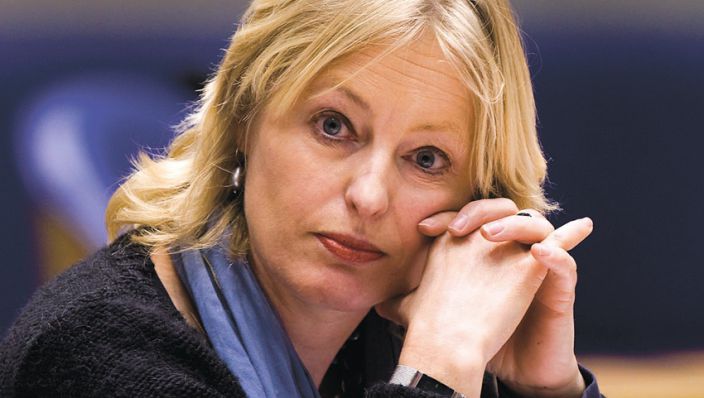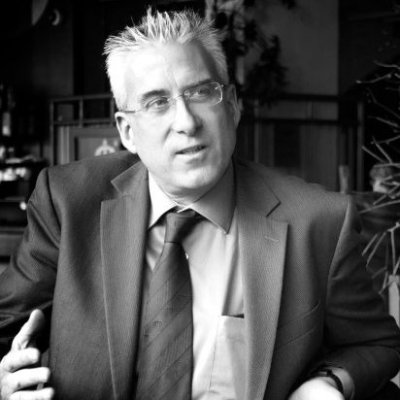Dutch Minister of Education in an English linguistic twist
 ‘To be or not to be’ – when is a university not a university? – A question that Wittenborg asked itself a year ago, when Dutch Minister of Education Jet Bussemaker announced a proposed change to the law that governs higher education in the Netherlands, that would ensure the name ‘university’ is protected and only used by institutions that are appointed and accredited. In the spring of 2015, Wittenborg wrote the minister a letter explaining its concerns about the misinterpretations and ambiguities that her planned regulation would encounter and cause!
‘To be or not to be’ – when is a university not a university? – A question that Wittenborg asked itself a year ago, when Dutch Minister of Education Jet Bussemaker announced a proposed change to the law that governs higher education in the Netherlands, that would ensure the name ‘university’ is protected and only used by institutions that are appointed and accredited. In the spring of 2015, Wittenborg wrote the minister a letter explaining its concerns about the misinterpretations and ambiguities that her planned regulation would encounter and cause!
According to Peter Birdsall, Wittenborg's Chair, "we fully agree with the intention to protect Dutch degrees and titles, and we also fully support the binary higher education system in the Netherlands, which works very well in my opinion, however we are worried about our worldwide competiveness and also local [Dutch] unfair competition from business schools that are owned by research universities"
The language problem that she encountered stems from the fact that the Netherlands, like Germany, Austria and Switzerland, employs a binary higher education system. This means that higher education is divided into institutions that primarily do master’s and doctoral research (Universiteiten) and institutions (Hogescholen, Hogeschule, Fachhochsule) that primarily teach bachelor’s and master’s programmes directly linked to the workfield, that educate students to either directly enter the employment market or improve their careers.
.jpg) Now, the recognised translation of a Dutch Hogeschool, a German Hochschule and an Austrian or Swiss Fachhochschule is ‘university of applied sciences’. A ‘Universiteit’ is translated simply as ‘university’. Wittenborg is a university of applied sciences.
Now, the recognised translation of a Dutch Hogeschool, a German Hochschule and an Austrian or Swiss Fachhochschule is ‘university of applied sciences’. A ‘Universiteit’ is translated simply as ‘university’. Wittenborg is a university of applied sciences.
As part of her new law, Bussemaker is proposing to impose a fine on any university of applied sciences that incorrectly uses the term ‘university’, however even she recognizes that there are complications with this. Linguistically, there is no doubt that a university of applied sciences is a university, just as a bird of prey remains a bird. Trying to regulate the language spoken by educators and about education in this way is like threatening to fine all ornithologists who mistakenly call a buzzard a bird. Her proposed sanctions for misuse, in text, speeches, even answering the telephone, will lead to ridiculous discussions about language use.
 According to Birdsall, Wittenborg finally received a reply to its letter last week, in which Bussemaker seemed to add even more confusion to the issue. In answer to Wittenborg’s concerns about the naming of its legal entities (Stichting WUAS Executive is, for instance, the controlling board of WUAS), she answered that the use of ‘university of applied sciences’ is only compulsory for the entity that actually registers students - however that this had to be imposed on all forms of communication, including 'picking up the telephone'. The conclusion is that an entity such as WUAS Press, that only publishes books, papers and news [Supporting WUAS] but doesn’t actually register students, falls outside the proposed law change. Names such as WUAS Research centre are also spared the awfully long-winded naming protocol.
According to Birdsall, Wittenborg finally received a reply to its letter last week, in which Bussemaker seemed to add even more confusion to the issue. In answer to Wittenborg’s concerns about the naming of its legal entities (Stichting WUAS Executive is, for instance, the controlling board of WUAS), she answered that the use of ‘university of applied sciences’ is only compulsory for the entity that actually registers students - however that this had to be imposed on all forms of communication, including 'picking up the telephone'. The conclusion is that an entity such as WUAS Press, that only publishes books, papers and news [Supporting WUAS] but doesn’t actually register students, falls outside the proposed law change. Names such as WUAS Research centre are also spared the awfully long-winded naming protocol.
Wittenborg had also asked to be provided with the procedure to become a research university, as there was a clear procedure to become a university of applied sciences. Bussemaker replied ‘there isn’t one’, ‘it's not possible’. Wittenborg doubts that there is no procedure, as there is clear evidence that one university of applied sciences (a business school) has become a research university in the past 10 years. Wittenborg will continue to press the ministry to reveal the procedure used to achieve this, and make it publicly available.
Although Wittenborg is clearly in favour of protecting degrees and names of higher education institutes, and has pledged to continue promoting the excellent binary system in the Netherlands, it sees the current proposal as ambiguous and unenforceable. Wittenborg, together with other universities of applied sciences, has asked its national representing body NRTO (Netherlands Association for Private Higher Education Providers) to voice a clear opposition to this change.
This week, the chair of the board of NHTV Breda University of Applied Sciences, Hein van Oorschot, a public institute in the south of the Netherlands, also voiced his concerns about the proposed law change, in an article written in the Avans University of Applied Siences journal ‘Punt”. “Noem een Hogeschool gewoon University"
He points out that universities of applied sciences often also offer academic research degrees, alongside the more vocational degrees. This is also the case at Wittenborg where academic research bachelor’s and master’s degrees are offered jointly with the University of Brighton. As many universities of applied sciences do, Wittenborg also engages in funded research, and many research universities are more often offering vocationally orientated degrees.
The grey areas are increasing, and WUAS (still an unpunishable usage of the English language) will continue to strive for a correct usage of the English language, avoidance of ambiguity and less silliness at the ministry!
External Sources: http://punt.avans.nl/2016/03/noem-een-hogeschool-gewoon-university/